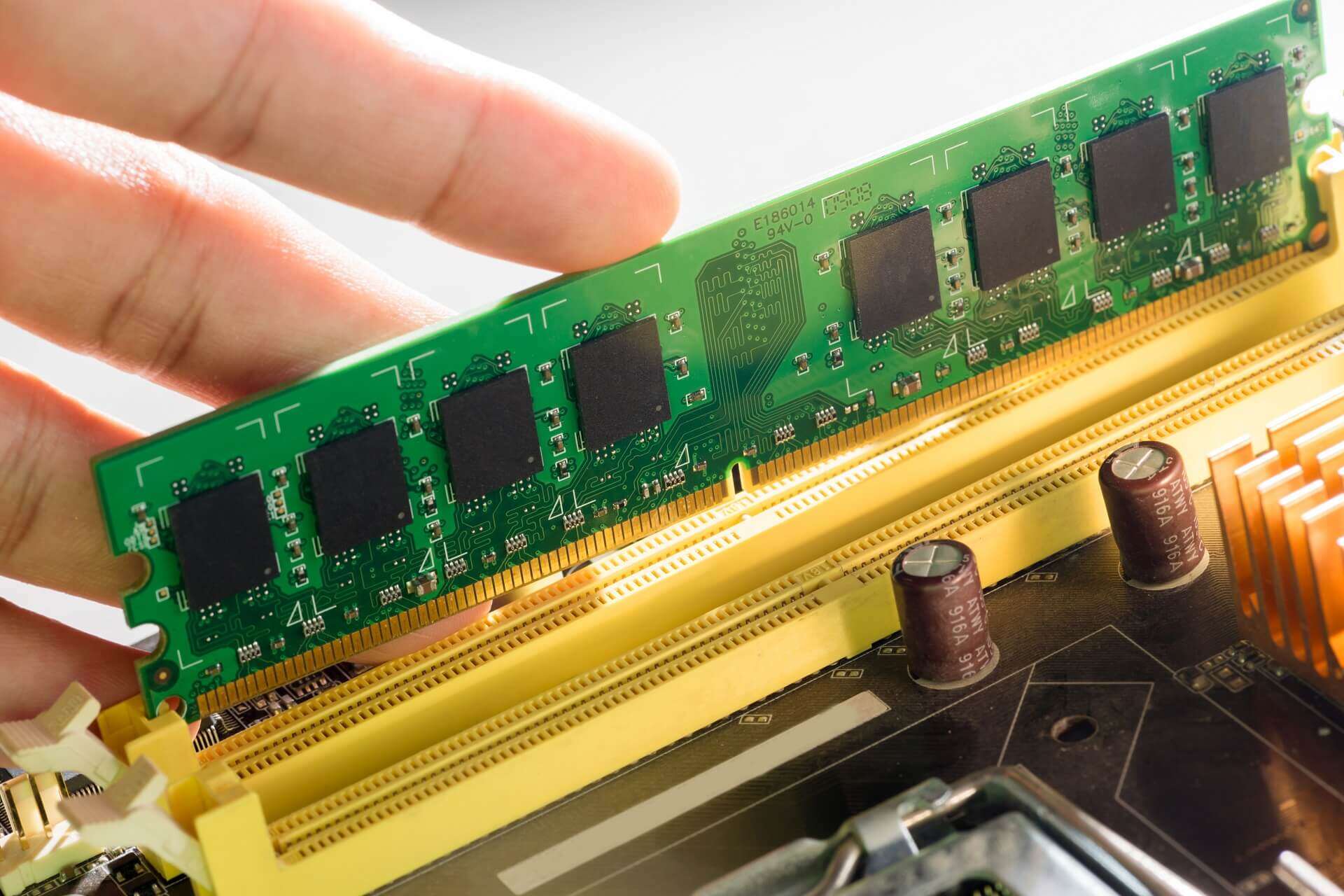Introduction
Welcome to the world of Ethereum, a decentralized and open-source blockchain platform that has revolutionized the way we think about digital currency and smart contracts. Ethereum has gained significant popularity due to its capabilities, scalability, and potential for innovation. With its native cryptocurrency called Ether (ETH), Ethereum has become a prominent player in the cryptocurrency market.
In this article, we will explore the value of 0.001 Ethereum and what it represents in the world of digital currency. But before we delve into the specifics, let’s take a closer look at what exactly Ethereum is and how it works.
Ethereum, first proposed by Vitalik Buterin in 2013, is a decentralized platform that enables the creation and execution of smart contracts and decentralized applications (DApps). Unlike traditional centralized systems, Ethereum is built on a blockchain, which is a distributed ledger that records transactions across multiple computers.
By utilizing Ethereum’s blockchain, developers can create and deploy smart contracts, which are self-executing contracts with the terms of the agreement directly written into code. These smart contracts run on the Ethereum Virtual Machine (EVM), allowing for secure and transparent interactions without the need for intermediaries.
Now that we have a basic understanding of Ethereum, let’s move on to understanding its denominations and how they relate to the value of 0.001 Ethereum.
What is Ethereum?
Ethereum is a decentralized, open-source blockchain platform that enables the development and execution of smart contracts and decentralized applications (DApps). It was proposed by Vitalik Buterin in 2013 and has since gained significant traction and recognition in the world of blockchain and cryptocurrency.
At its core, Ethereum is a programmable blockchain that allows developers to build and deploy applications without the need for intermediaries. Unlike the Bitcoin blockchain, which focuses primarily on peer-to-peer transactions, Ethereum provides a platform for developers to create decentralized applications that can handle more complex transactions and logic.
Ethereum introduces a native cryptocurrency called Ether (ETH), which serves as the fuel for executing and validating transactions on the Ethereum network. Ether is essential for interacting with smart contracts and is used to incentivize network participants, known as miners, who contribute their computational power to maintain the Ethereum blockchain.
One of the key innovations of Ethereum is its ability to execute smart contracts. Smart contracts are self-executing agreements with the terms and conditions directly embedded in code. These contracts automatically enforce the agreed-upon rules and eliminate the need for intermediaries or centralized authorities, providing transparency and efficiency.
Using the Ethereum Virtual Machine (EVM), developers can create and run smart contracts on the Ethereum network. The EVM is a Turing-complete runtime environment that enables the execution of smart contract code. It ensures consistency and security by executing the same code across all participating nodes on the Ethereum network.
With its flexibility and programmability, Ethereum has paved the way for a wide range of applications. From decentralized finance (DeFi) platforms and decentralized exchanges (DEX) to gaming, supply chain management, and identity verification, Ethereum has fostered a vibrant ecosystem of projects and tokens.
As Ethereum continues to evolve and improve, it is positioned to play a crucial role in shaping the future of blockchain technology and decentralized applications. It provides a platform for developers to create innovative solutions, facilitates transparent and secure transactions, and tokenizes and digitizes assets.
Now that we have a better understanding of Ethereum, let’s explore the denominations of Ethereum and how they relate to the value of 0.001 Ethereum.
Understanding Ethereum Denominations
When discussing the value of Ethereum, it’s important to understand the various denominations associated with the cryptocurrency. Ethereum denominations are commonly used to represent different fractions of Ether (ETH) and help users calculate and transact with smaller or larger amounts of the cryptocurrency.
The primary unit of Ethereum is Ether (ETH), which is often likened to the concept of “digital gold” in the Ethereum ecosystem. Ether serves as both the native cryptocurrency of the Ethereum network and the fuel for executing transactions and running smart contracts.
Here are the main Ethereum denominations:
- Ether (ETH): Ether is the base unit and the primary denomination of Ethereum. It is the largest unit of Ethereum and is often used for significant transactions and holdings.
- Gwei: Gwei is the next smaller denomination of Ethereum, representing one billionth of an Ether (0.000000001 ETH). Gwei is commonly used to measure gas prices and transaction fees on the Ethereum network. Gas is used to quantify the computational effort required to execute transactions and smart contracts on the Ethereum network.
- Wei: Wei is the smallest unit of Ethereum, representing the fundamental indivisible unit of Ether. One Ether is equivalent to 1 quintillion Wei (10^18 Wei).
Now, let’s examine the value of 0.001 Ethereum and how it translates into these denominations.
Considering that 1 Ether is equivalent to 1 quintillion (10^18) Wei, we can calculate the value of 0.001 Ethereum in Wei by multiplying it by 1 quintillion. Therefore, 0.001 Ethereum is equal to 1 trillion Wei (1,000,000,000,000 Wei).
In terms of Gwei, 0.001 Ethereum is equivalent to 1 billion Gwei (1,000,000,000 Gwei). This conversion is derived from the fact that there are 1 billion Gwei in 1 Ether.
As for the value of 0.001 Ethereum in Ether, it remains the same, as it is the base denomination of Ethereum. Therefore, 0.001 Ethereum is equal to 0.001 Ether.
Now that we have established the denominations and values of Ethereum, let’s delve into the factors that influence the value of Ethereum as a cryptocurrency.
How Much is 0.001 Ethereum?
Now let’s dive into the value of 0.001 Ethereum and what it represents in the world of digital currency. As mentioned earlier, 0.001 Ethereum is equivalent to 0.001 Ether. To understand the value of this amount, we need to consider the current market price of Ether.
The value of Ethereum, like other cryptocurrencies, is highly volatile and can fluctuate rapidly. It is influenced by a range of factors, including market demand, investor sentiment, technological advancements, regulatory developments, and macroeconomic trends.
At the time of writing, let’s assume the market price of Ethereum is $2000 per Ether. Based on this assumption, 0.001 Ethereum would be valued at $2.
It’s important to note that the value of 0.001 Ethereum can vary depending on the market conditions and the price of Ethereum. Therefore, it’s essential to stay updated with the current market prices and perform real-time calculations to determine the precise value of 0.001 Ethereum.
0.001 Ethereum may seem like a small amount, but it still holds value in the cryptocurrency ecosystem. It can be used for various purposes, such as making smaller transactions, paying for transaction fees, participating in decentralized applications, or even as an investment.
Moreover, as the price of Ethereum fluctuates, the value of 0.001 Ethereum can appreciate or depreciate accordingly. So, even a seemingly insignificant amount can have the potential for growth if the market conditions are favorable.
It’s important to remember that cryptocurrency investments carry risks, and the value of Ethereum can be subject to significant volatility. Therefore, it’s crucial to do thorough research, evaluate your risk tolerance, and make informed decisions when dealing with cryptocurrencies.
Now that we understand the value of 0.001 Ethereum, let’s explore the various factors that influence the value and price of Ethereum as a cryptocurrency.
Factors Influencing the Value of Ethereum
The value and price of Ethereum, like any other cryptocurrency, are influenced by a multitude of factors. Understanding these factors can provide insights into the dynamics of the market and help assess the potential risks and opportunities associated with owning and investing in Ethereum. Here are some key factors that influence the value of Ethereum:
- Market Demand: The demand for Ethereum plays a significant role in determining its value. Increased adoption and usage of Ethereum in various applications and industries can drive up demand and subsequently impact its price.
- Investor Sentiment: Cryptocurrency markets are strongly influenced by investor sentiment. Positive news, developments, and market trends can attract more investors, leading to increased demand for Ethereum and potentially higher prices.
- Technological Advancements: Ethereum is a platform that constantly evolves and improves. Technological advancements such as upgrades, scalability solutions, and enhanced functionalities can positively impact the value of Ethereum by increasing its utility and attracting more users.
- Regulatory Environment: Regulatory actions and policies related to cryptocurrencies can significantly impact their value. Favorable regulations that promote innovation and adoption of Ethereum can contribute to its growth, while unfavorable regulations can create uncertainties and affect its value in the market.
- Macro-economic Trends: The overall economic climate, including global economic factors, inflation rates, interest rates, and geopolitical events, can indirectly influence the value of Ethereum. Economic stability and positive market conditions can contribute to increased confidence in cryptocurrencies, including Ethereum.
- Competition from other Cryptocurrencies: Ethereum operates in a competitive landscape with numerous other cryptocurrencies and blockchain platforms. The competition and market share of these alternatives can impact the value of Ethereum as investors assess the relative strengths and weaknesses of different cryptocurrencies.
- Network Security and Reliability: Ethereum’s security and reliability are crucial aspects that affect its value. Any vulnerabilities or network disruptions can erode investor confidence and potentially lead to a decline in value.
It’s important to note that these factors are interconnected and can influence each other in complex ways. The cryptocurrency market is highly dynamic and subject to rapid changes, making it essential for investors and stakeholders to stay informed, monitor market conditions, and adapt their strategies accordingly.
By analyzing these factors and assessing their potential impact on the value of Ethereum, investors can make more informed decisions and navigate the volatile cryptocurrency market more effectively.
Now that we have explored the factors influencing the value of Ethereum, let’s examine the potential and possibilities that 0.001 Ethereum holds.
The Potential of 0.001 Ethereum
While 0.001 Ethereum may seem like a small amount in the world of cryptocurrency, it still holds potential and opportunities. Let’s explore the potential of 0.001 Ethereum:
1. Accessibility: 0.001 Ethereum allows individuals with smaller budgets to participate in the Ethereum ecosystem. It enables them to experience the benefits of owning and transacting with Ethereum without requiring significant upfront investments.
2. Future Growth: Cryptocurrencies, including Ethereum, have shown the potential for significant growth over time. While 0.001 Ethereum may have a relatively low value today, its future potential for appreciation should not be underestimated.
3. Fractional Ownership: 0.001 Ethereum represents fractional ownership of a larger whole. As the value of Ethereum increases, the value of 0.001 Ethereum also rises proportionally. This provides an opportunity for investors to benefit from the growth of Ethereum, even with a smaller initial investment.
4. Participation in Decentralized Applications: With 0.001 Ethereum, users can access and interact with various decentralized applications (DApps) built on the Ethereum platform. These DApps offer services such as decentralized finance (DeFi), gaming, decentralized exchanges, and more. By participating in these applications, users can potentially generate earnings or receive rewards.
5. Learning and Experimentation: 0.001 Ethereum provides an opportunity for individuals to learn and experiment with Ethereum and its functionalities without a significant financial commitment. It allows users to familiarize themselves with wallets, transactions, smart contracts, and explore the possibilities of the Ethereum ecosystem.
6. Gateway to Further Investment: 0.001 Ethereum can serve as a starting point for individuals interested in cryptocurrencies. It allows them to enter the market and learn about the dynamics of investing in digital assets. It can act as a stepping stone for further investment and portfolio diversification.
7. Micropayments and Transactions: With its low value, 0.001 Ethereum can be used for micropayments and transactions within the Ethereum network. This can enable small-scale interactions and facilitate the exchange of value in various decentralized applications and platforms.
While the potential of 0.001 Ethereum should be acknowledged, it’s important to note that investing in cryptocurrencies carries risks. The cryptocurrency market is highly volatile, and prices can fluctuate significantly. It’s essential to conduct thorough research, exercise caution, and make informed decisions when dealing with cryptocurrencies.
Now that we have explored the potential of 0.001 Ethereum, let’s conclude our discussion on Ethereum and its denominations.
Conclusion
In conclusion, Ethereum has established itself as a leading blockchain platform, revolutionizing the way we think about digital currency and smart contracts. With its native cryptocurrency, Ether (ETH), Ethereum facilitates secure and transparent transactions, as well as the execution of programmable smart contracts.
Understanding the denominations of Ethereum is crucial when evaluating the value of 0.001 Ethereum. While it may seem like a small amount, 0.001 Ethereum still holds value and can be used for various purposes within the Ethereum ecosystem.
The value of Ethereum is influenced by various factors, including market demand, investor sentiment, technological advancements, regulatory environment, macroeconomic trends, competition from other cryptocurrencies, and network security. It is important to consider these factors when assessing the potential risks and opportunities associated with Ethereum.
Despite its small value, 0.001 Ethereum holds potential. It offers accessibility, fractional ownership, participation in decentralized applications, learning opportunities, and the gateway to further investments. Additionally, it can be used for micropayments and small-scale transactions within the Ethereum network.
It is important to note that investing in cryptocurrencies carries risks, as the market is highly volatile. Conducting thorough research, staying informed, and making informed decisions are essential when dealing with Ethereum or any other cryptocurrency.
As Ethereum continues to evolve and gain traction, it becomes increasingly important to stay updated with the latest developments and market conditions. Ethereum has paved the way for a new era of decentralized applications and has the potential to shape the future of blockchain technology.
Whether you possess 0.001 Ethereum or a larger amount, embracing the opportunities presented by Ethereum requires diligence, understanding, and a long-term perspective to navigate the ever-changing landscape of the cryptocurrency market.

























